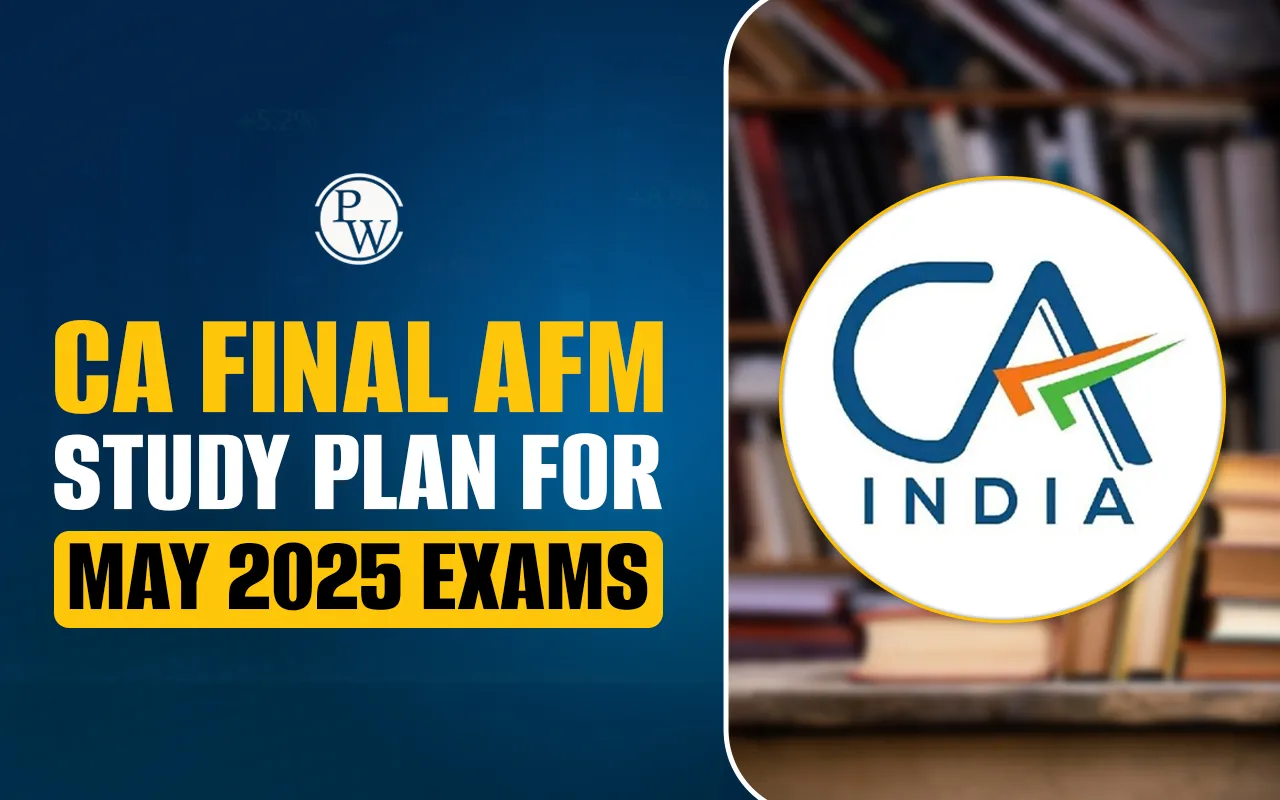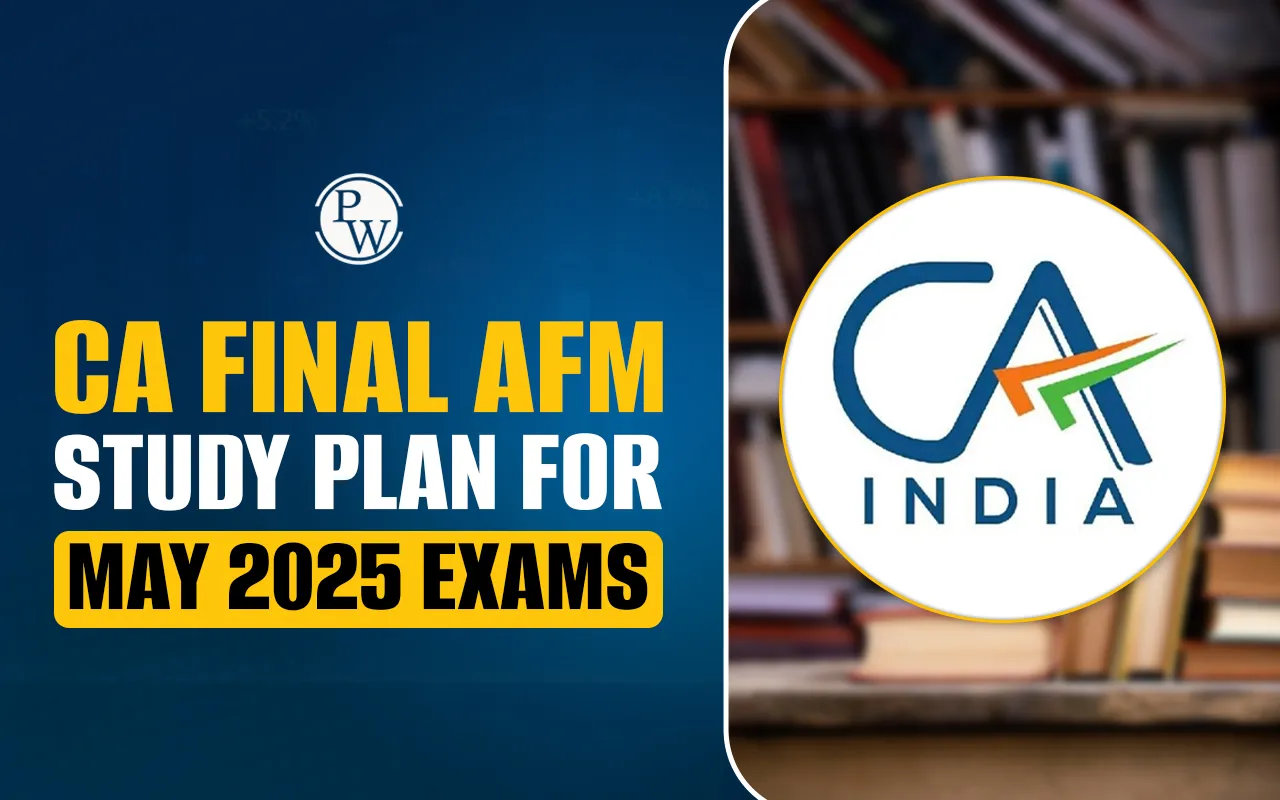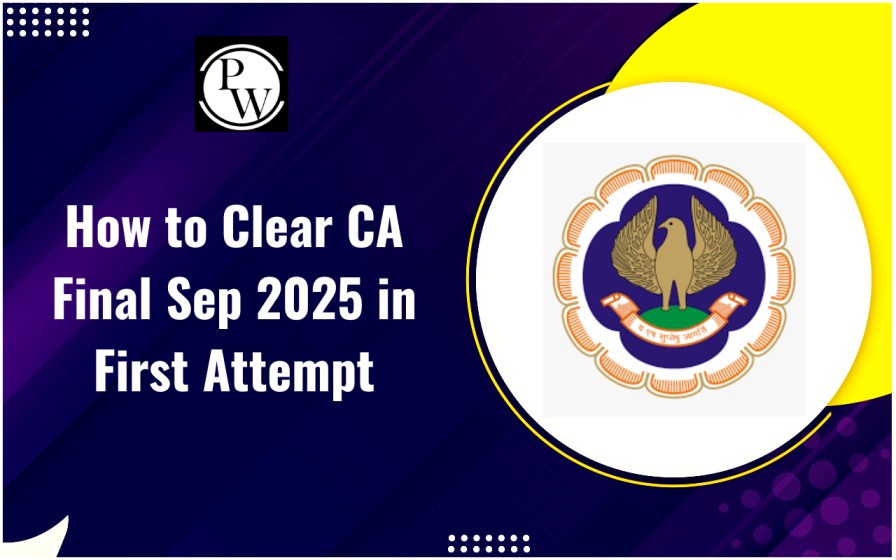
Among all the CA Final papers, Advanced Financial Management (AFM) often stands out for its dynamic nature and real-world applicability. As you transition from CA Foundation to this final frontier, it’s important to build a strong and realistic CA Final AFM Study Plan.
You’re not just studying for an exam, you’re preparing to make financial decisions at the highest level of an organization. With May 2025 approaching fast, the time to plan, execute, and rise is now. Here, we’ll walk you through everything you need to know to create and stick to an effective and structured CA Final AFM Study Plan.
CA Final AFM
The Advanced Financial Management (AFM) paper in CA Final is not just another academic hurdle; it’s a simulation of your future responsibilities in the financial world. It challenges your analytical thinking, decision-making, and command over concepts that affect businesses globally.
Whether it is about mergers, corporate restructuring, international finance, or risk management, AFM demands that you think like a CFO. That’s why the CA Final AFM Study Plan must focus not only on conceptual clarity but also on time management and application.
Understanding the emotional weight of this paper is essential. AFM can overwhelm you if you don’t plan your study hours effectively. Many students often find themselves stuck between theory and numericals.
The truth is, that both are equally important, and your CA Final AFM Study Plan should reflect that balance. Remember, you’ve made it this far, and AFM is your chance to showcase the strategic mind that’s been nurtured through years of hard work.
CA Final AFM Syllabus
The CA Final Syllabus for AFM is designed to test your grasp over core financial strategies and modern tools in the finance domain. A well-structured CA Final AFM Study Plan must begin with a detailed understanding of each topic.
-
Financial Policy and Corporate Strategy
-
Risk Management
-
Advanced Capital Budgeting Decisions
-
Security Analysis
-
Security Valuation
-
Portfolio Management
-
Securitization
-
Mutual Funds
-
Derivatives Analysis and Valuation
-
Foreign Exchange Exposure and Risk Management
-
International Financial Management
-
Interest Rate Risk Management
-
Business Valuation
-
Mergers, Acquisitions and Corporate Restructuring
-
Startup Finance
CA Final AFM Study Plan
A well-crafted CA Final AFM Study Plan ensures that your preparation is focused, efficient, and consistent. Below is a detailed roadmap to help you excel in the May 2025 exams.
Week 1-2: Understand the Basics
Dedicate the initial two weeks to revisiting basic concepts from earlier levels of your CA journey. Topics like capital budgeting, cost of capital, and financial ratios are foundational and require a solid grasp. Ensure that you’re comfortable with financial formulas and calculation methods. Utilize standard reference books and ICAI study material for clarity.
Week 3-4: Cover the Core Topics
Begin exploring the core modules such as financial policy and risk management. These areas require detailed study and regular practice. Create concise notes to summarize key points and formulae for quick revision. Additionally, try solving basic case studies to apply theoretical knowledge practically.
Week 5-6: Dive Into Advanced Modules
During these weeks, focus on complex topics like mergers, acquisitions, and international finance. These modules often feature application-based questions that test your analytical and strategic thinking. Refer to past year’s question papers and ICAI mock tests to understand the question pattern.
Week 7-8: Solve Mock Tests and Revisit Weak Areas
The final weeks should be dedicated to solving mock exams and working on weak areas. Attempt ICAI’s practice papers under timed conditions to simulate the actual exam. Analyze your performance, identify mistakes, and work on rectifying them. Use this time to refine your problem-solving speed and accuracy.
CA Final AFM Study Plan for Self-Study vs Coaching
Self-study and coaching both have their place in your CA Final AFM Study Plan. If you’re doing self-study, ensure your material is updated and aligns with ICAI’s recent trends. Create your own notes, highlight keywords, and solve every question with detailed working notes. On the other hand, if you’re taking coaching, don’t just passively watch lectures. Be an active participant, pause, take notes, and solve simultaneously.
Whether you choose one method or combine both, the key is consistency. The more realistic and emotionally balanced your CA Final AFM Study Plan is, the better your chances of scoring exemption-level marks.
CA Final AFM Study Plan FAQs
What is the best time to start the CA Final AFM Study Plan?
Can I follow a CA Final AFM Study Plan if I am doing articleship?
How many hours should I dedicate to the CA Final AFM Study Plan daily?
Should I make notes during the CA Final AFM Study Plan?














